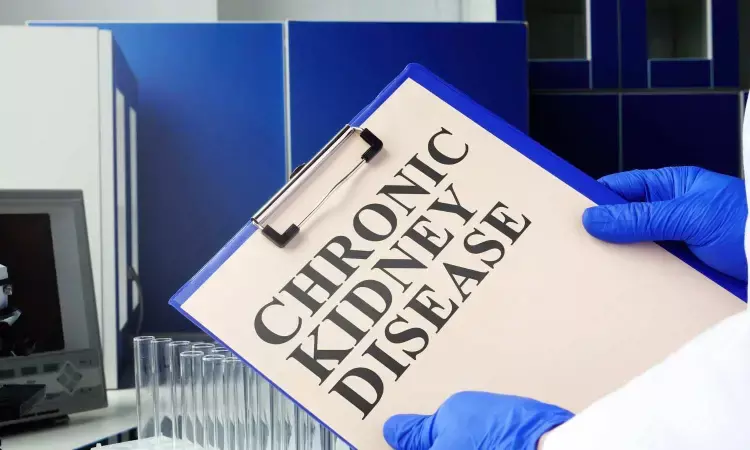- Home
- Medical news & Guidelines
- Anesthesiology
- Cardiology and CTVS
- Critical Care
- Dentistry
- Dermatology
- Diabetes and Endocrinology
- ENT
- Gastroenterology
- Medicine
- Nephrology
- Neurology
- Obstretics-Gynaecology
- Oncology
- Ophthalmology
- Orthopaedics
- Pediatrics-Neonatology
- Psychiatry
- Pulmonology
- Radiology
- Surgery
- Urology
- Laboratory Medicine
- Diet
- Nursing
- Paramedical
- Physiotherapy
- Health news
- Fact Check
- Bone Health Fact Check
- Brain Health Fact Check
- Cancer Related Fact Check
- Child Care Fact Check
- Dental and oral health fact check
- Diabetes and metabolic health fact check
- Diet and Nutrition Fact Check
- Eye and ENT Care Fact Check
- Fitness fact check
- Gut health fact check
- Heart health fact check
- Kidney health fact check
- Medical education fact check
- Men's health fact check
- Respiratory fact check
- Skin and hair care fact check
- Vaccine and Immunization fact check
- Women's health fact check
- AYUSH
- State News
- Andaman and Nicobar Islands
- Andhra Pradesh
- Arunachal Pradesh
- Assam
- Bihar
- Chandigarh
- Chattisgarh
- Dadra and Nagar Haveli
- Daman and Diu
- Delhi
- Goa
- Gujarat
- Haryana
- Himachal Pradesh
- Jammu & Kashmir
- Jharkhand
- Karnataka
- Kerala
- Ladakh
- Lakshadweep
- Madhya Pradesh
- Maharashtra
- Manipur
- Meghalaya
- Mizoram
- Nagaland
- Odisha
- Puducherry
- Punjab
- Rajasthan
- Sikkim
- Tamil Nadu
- Telangana
- Tripura
- Uttar Pradesh
- Uttrakhand
- West Bengal
- Medical Education
- Industry
Yale Researchers Identify New Biomarker Panel to Assess Risk of Chronic Kidney Disease Progression in Children

Yale School of Medicine researchers have identified a biomarker panel that improves the assessment of chronic kidney disease (CKD) progression in children. Their findings were published in the Journal of the American Society of Nephrology.
Pediatric CKD can progress to kidney failure, requiring dialysis or kidney transplant. Due to high mortality rates among children with kidney failure, researchers have sought to improve the prediction of disease progression for improved clinical monitoring and clinical trial enrollment.
"For kids and parents, knowledge of the risk of progression will allow those at higher risk to engage in preventative strategies, and those at lower risk to decrease the cadence of their medical visits, leading to less disruption of critical childhood experiences."
The study included over 500 children with CKD aged six months to sixteen years from the Chronic Kidney Disease in Children (CKiD) Cohort Study. The investigators measured biomarkers in plasma and urine to develop a biomarker panel that significantly improved the prediction of CKD progression.
The panel built on previous work by Jason Greenberg, MD, MHS, and colleagues as a part of the Chronic Kidney Disease (CKD) Biomarkers Consortium, which had examined biomarkers of kidney tubule health, injury, dysfunction, and inflammation. In the study, they utilized regression tree–based statistical modeling to determine the most informative predictors of pediatric CKD. In the final biomarker panel, the urine albumin/creatinine ratio, urine epidermal growth factor/creatinine ratio, plasma kidney injury molecule-1, and estimated glomerular filtration rate were the most predictive biomarkers, helping to identify the children at highest risk of CKD progression.
“While current clinical biomarkers only partially capture the variability of CKD progression, this research demonstrates that a combination of biomarkers which represent key pathways of kidney health can significantly improve risk prediction,” says Greenberg, associate professor of pediatrics (nephrology) and a member of the Yale Clinical and Translational Research Accelerator (CTRA), who led the study.
“This research could help physicians with clinical monitoring and treatment strategies for individual patients, potentially slowing disease progression and improving long-term outcomes,” he says.
The study also highlights the importance of incorporating tubular health biomarkers into CKD risk assessment, “a factor often overlooked in clinical practice,” he adds.
F. Perry Wilson MD, MSCE, associate professor of medicine (nephrology) and public health (chronic disease epidemiology) and director of the CTRA, notes that this project highlight the transfer of CTRA discoveries from the lab to clinical practice.
“For kids and parents, knowledge of the risk of progression will allow those at higher risk to engage in preventative strategies, and those at lower risk to decrease the cadence of their medical visits, leading to less disruption of critical childhood experiences,” he says. “Better predicting outcomes in pediatric CKD demonstrates the power of personalized medicine.”
Reference:
Greenberg, Jason H, Biomarker Panels for Discriminating Risk of CKD Progression in Children, Journal of the American Society of Nephrology, DOI: 10.1681/ASN.0000000602
Dr Kamal Kant Kohli-MBBS, DTCD- a chest specialist with more than 30 years of practice and a flair for writing clinical articles, Dr Kamal Kant Kohli joined Medical Dialogues as a Chief Editor of Medical News. Besides writing articles, as an editor, he proofreads and verifies all the medical content published on Medical Dialogues including those coming from journals, studies,medical conferences,guidelines etc. Email: drkohli@medicaldialogues.in. Contact no. 011-43720751


